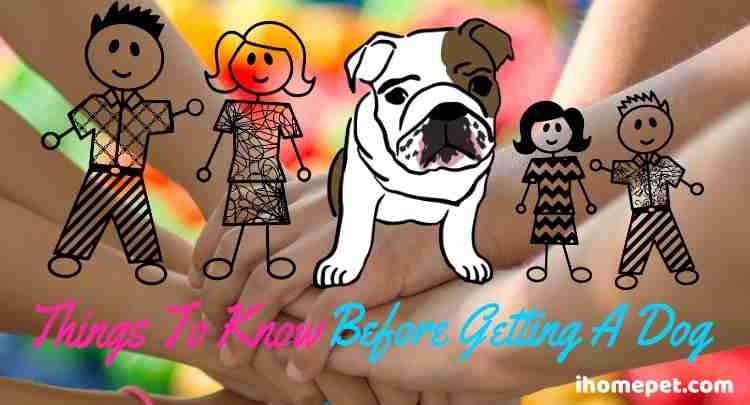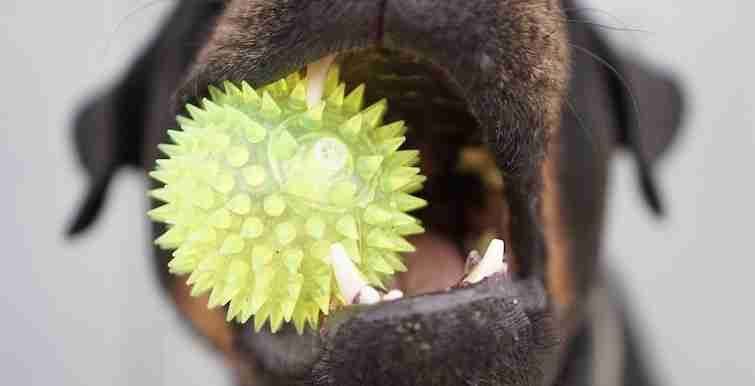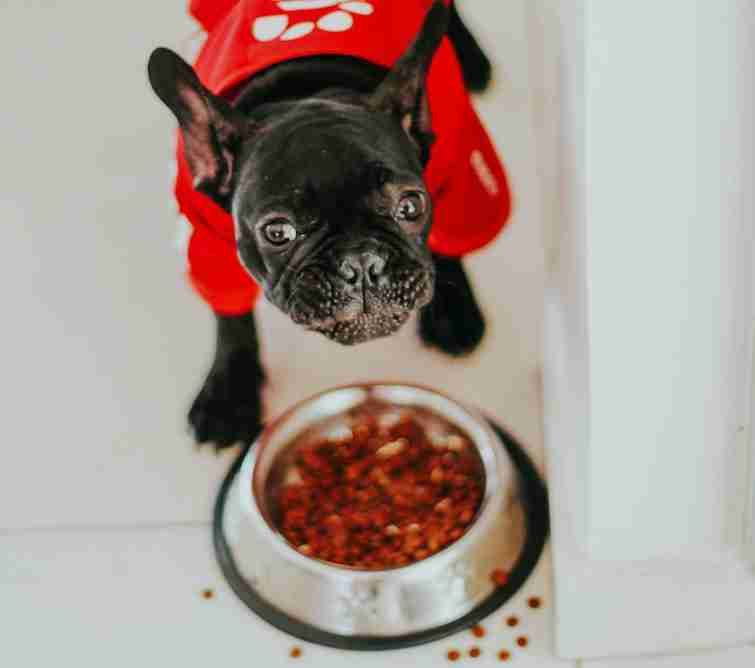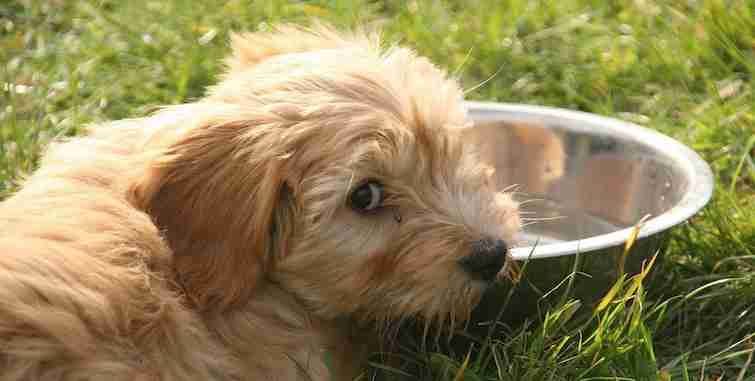Bringing home a dog as a Valentine’s day gift is a fantastic idea. Although adding a dog to a family is always a blessing, it does come with a tremendous amount of responsibilities. Now you are probably wondering, what are the basic things to know before getting a dog?
Some of the things to know will include pet insurance cost, breed of dog to choose, house training ideas, type of dog food, and others. Your dogs health will become the number one priority, and just know that pet care is not a cheap expense. Dog owners will require to coordinate vet visits, maintain hygiene, coordinate grooming appointments, and more.
Top 25 Things To Know Before Getting A Dog

A dog can be hugely rewarding and great fun, but owning a pet like this can also turn out to be time-consuming and costly. If you think you are ready for this type of responsibility, here is a list of considerations to think about before you visit your local pet store, local shelter, or rescue group.
#1 A Dog Is For Life Just Like Human Babies
Owning pets such as cats and dogs is a commitment for life. Animals develop a deep bond with their family members. Giving a dog away or changing dog ownership is often traumatic and very stressful on the animal.
For this reason, you must be ready to commit to becoming a dog owner. As an owner of a dog, you should be in a position to provide water, food, shelter, attention, love, and medical care when necessary.
#2 Take Your Time If You Are Thinking About Buying A Puppy
Chat to the employees at a local shelter to ensure that the puppy or dog meets everyone that lives in your home. It is also crucial to make sure you have space and time for your new family member so that they are offered a chance to live a good life.
Find out more about the dogs health before you make a final decision to bring home the animal. Health concerns would become a problem for some families when it comes to adding a new pet.
#3 Learn How To Crate Train Your Dog
The first thing you need to know when it comes to crate training is that you need to create a positive association between the crate and the animal. Food or treats helps a lot to crate train your dog and to create a relaxed mind frame.
Adding a dog bed and some toys will help create that positive and comfortable environment on your dog’s crate. Remember that you will need to have lots of patience because this process can take up to six months.
#4 You Must Get Your Pet Neutered Or Spay
Dogs that are spayed or neutered generally live longer and healthier lives. It also prevents adding to an existing population of pets that are in desperate need of a home.
Spaying and neutering a female dog also reduces the chances of urine infections and prevents breast tumors. Only the long run, you will save money, time and energy if you spay your pooch.
#5 Purchase Accessories For Your Dog Before You Bring The Pet Home

Before taking a new puppy or dog home, you should have all the necessary supplies ready. These items include a collar, a rabies tag, ID tag, water, and food bowls (ceramic, glass, or steel is preferable), leash (4 to 6 feet long), toys, food and treats, and comfortable bedding a training box or a bed for your puppy to sleep on.
#6 Dog-Proof Your Home
Before you bring a new puppy home, it is important to make sure that anything toxic or poisonous is kept out of reach. Some of these important items include chemical cleaners, plastic bags, toxic plants. If you are still unsure about any items, you can contact Pet Poison Helpline.
#7 Get Rid Of Poisonous Plants
There are many types of plants that could be toxic to a pet. Some of these include chrysanthemums, Lilies, tulips, and more. Make sure you search for the plants that are toxic to dogs to puppy-proof your home. It is also important to keep gardening and lawn products out of reach. Mulch and insecticides can also be dangerous to an adventurous puppy.
#8 Be Prepared To House Train Your Puppy
Puppies all need house training as they won’t know that the yard and not inside your house is the right place to “do their business.” It is your responsibility as a dog parent of a pet to train your dog to go outside. This will require a lot of patience, time, and a dedicated and consistent regimen. It is also important not to shout at or hit your dog if they make a mistake.
#9 Schedule An Appointment With Your Vet
It is important to take your dog to a vet to make sure the puppy has been vaccinated. The required vaccinations will vary from one state to the next, so make sure you ask your vet to ensure your puppy is up-to-date and healthy.
Additionally, ask for information about the best food for puppies. Your vet would be the starting point when it comes to the nutrition of your puppy. We have a few articles with regards to dog food that you should take a look into as well.
#10 Allow Your Pet To Be Social
You must socialize your pet as soon as possible. When you expose the dog to different people, environments, and even other dogs, the animal will be more stable, confident, and happy. It is important to carry on with socialization even when your puppy turns into an adult. Socialization lowers the chances of the dog becoming aggressive or fearful towards other animals and people.
#11 Find Out What Not To Feed Your Dog

Chocolate, onions, garlic, grapes, and avocado are all featured on a list of food items that are dangerous or hazardous for dogs. There are also common dangerous household items such as antifreeze, mothballs, and fabric-softener sheets.
Creating a feeding schedule will also save you time and energy. Ask your vet the type of food that you should get for your pooch. Not all dog breeds are the same, and some breeds require special canine attention when it comes to food.
Think about the correct nutrition for your dog before you choose a food. Depending on the age of the dog, their nutritional needs will start to change, but fats, carbohydrates, minerals, and vitamins are all important elements of a puppy or dog’s diet.
#12 Be Prepared To Groom Your Pet
It is important to groom your puppy so that you get used to a regular grooming routine. Start with short sessions so that your dog gets used to being cleaned and brushed. When you groom your dog, you give your dog a reward when you are finished.
Your pet’s nails should not be touching the ground, and if your dog has long hair, it needs to be brushed as often as possible. This will help to prevent skin irritations and tangles.
If you decide to take your pooch to a grooming service, choose one with good customer care. Dog grooming will be a huge expense, and it will add lots of numbers to the annual cost of maintaining a pooch.
#13 Frequently Check Your Puppy For Ticks And Fleas, Especially In The Summer Months
Today there are many tick and flea prevention treatments and products to choose from. Ask your vet about the best options for your particular breed and the area that you live in.
#14 You Will Become Your Dog’s Dentist
It is important to brush your dog’s teeth to prevent gum or dental diseases. Most vets recommend at least 2 to 3 times weekly. You should also ask your vet what type of paste and toothbrush to use.
#15 Start Training Your Puppy As Soon As Possible
Puppies and dogs love training and discipline when done correctly; if you have the time, think about using a dog trainer or attending training sessions.
A puppy requires lots of attention from its owners. Taking an extra potty training class will make your life easier so that you are prepared when your furry friend comes home.
#16 Find Out What Breed of Dog Is A Good Fit

There are plenty of things you should evaluate when it comes to choosing the right breed of dog for you. Here are some of the key questions that play a crucial role when it comes to choosing the right breed for you:
- What type of home are you going to be living in?
- Are you going to have lots of space to play with your dog?
- Do you currently have kids or plan to have some in the near future?
- Have you owned a dog, or are you totally new to dogs?
- Is this dog going to by himself, or is it going to have a pet roommate?
- What type of personality do you want your dog to have?
- How much barking can you tolerate?
- How much time will you be able to spend with your dog?
- Are you going to train your dog or not?
- What size and weight do you want your dog to have?
- Do you want mixed or purebred dogs?
Answering these questions will help you get close to a great fit when it comes to choosing a breed of dog.
#17 Get Your Puppy Used To Have Their Paws Touch
It is important to get your puppy accustomed to having their paws touched so that you won’t have a hard time trimming the dog’s nails. It is important to be patient and take it slow. Your groomer or your vet can do this if you are nervous about doing it on your own. Your puppy’s nails should just be touching the ground.
If the dog’s nails clack against your floors or if they have started to snag, it’s time for a trim. If your dog has fluffy hair, make sure that you trim and comb the hair around the paw pads to prevent matting, which can become extremely painful.
#18 Keep Your Dog’s Ears Clean
The curvy design of most dogs’ inner ear often results in parasites, yeast, and bacteria. The breeds with floppy ears are especially prone to these types of infections of the ear. Your puppy’s maintenance and grooming schedule must include ear checks.
It is also important not to clean your dog’s ears too often since this can also result in irritations. It is also important to know that frequent swimming or bathing can result in irritations. You should also completely refrain from sticking anything into the ear canal.
#19 Your Puppy Needs a Safe And Warm Place To Sleep
You may want to consider getting a bed for your dog or a training-crate. If you think about getting one of the smaller breeds, you may even want to let your puppy sleep with you at night. They are going to be spending a lot of time on this accessory, so please choose wisely.
#20 On Very Hot Days Bring Your Dog Inside
Even when the windows are open in your car, your dog can overheat very quickly, and the same goes for leaving a dog outside on very hot days. Exposing your pooch to hot pavement can hurt your dog paws.
Also, adult dogs with overexposure to heat can cause serious health problems to your pooch. Health concerns will become your number one priority once you decide to bring home a puppy.
#21 Make Sure Your Dog Always Has Access To Fresh And Clean Water

Your dog must always have easy access to a clean bowl filled with fresh water. It is also important to clean the water bowl out daily to prevent bacteria and algae. If your dog is constantly knocking their water container over, buy a weighted-bottom container or bowl.
#22 Never Leave Your Dog Tied Up
Before you decide to bring a puppy home, you need to ensure that your dog is welcome in your home and yard. Tying an animal up threatens the health, safety, and well-being of the animal.
#23 Your Dog Will Probably Try To Eat Poop
According to the American Kennel Club, eating poop is in a dog’s DNA. In fact, they produced a study that showed that almost 24% of dogs would try to eat poop at least once in their lifetime.
Although it is normal for a dog to eat its own poop, you should try to avoid this. Especially when the poop that they are trying to eat is not their own, this can cause health issues on your pooch.
#24 Owning A Pet Can Become Expensive
Owning a pet can turn into a significant financial commitment. It would help if you always went through the dog breeds price list to know which one fits your budget. Adding a pet health insurance is something to look into before you consider adopting any pets.
The typical pet care includes veterinary care (basic), supplies, and food works out to around $800 to $1,000 a year. If any adult dogs requires emergency care, you could be looking at $250 to $5,000 in vet fees for a single event. Yes, this is how expensive vet visits can get.
#25 Find A Pet Sitter Or A Local Dog Hotel
As part of being a responsible dog parent, you need to have a place or a person that you can rely on if you need to take a break or vacation. Here is where a pet sitter or a dog hotel can help. Having one of these two options available will allow you to spend time doing extra curriculum activities.
Final Thoughts
If you are ready to commit to a dog, make sure you are completely confident about your decision. Dogs and cats are a life-long commitment, especially when the dog is still a puppy. More importantly, you need to be sure that you are ready to shower the latest addition to your family with tons of love.
After reading these tips, you will be prepared for when a puppy comes home. A puppy or dog takes patience and time, but you can be sure that the love and affection that the animal will give you will be worth it. As a pet owner, you are going to be responsible for all of the previously mentioned things.
Last Updated on 16/03/2025 by Karen Snow
Hi! I’m Karen and a certified dog lover. As a freelance writer and blogger, I do my best to squeeze in some time with my dogs, learning more about the way they act and how I can make sure that they continue to stay well-cared for by yours truly.
My dogs have helped me through a lot, and this is my way of giving back to them! Besides animals, I also love to travel and cook, having explored my country’s restaurants and unique places. Follow me as I show you all the amazing tips and bits of information I learn along the way about our furry friends!
